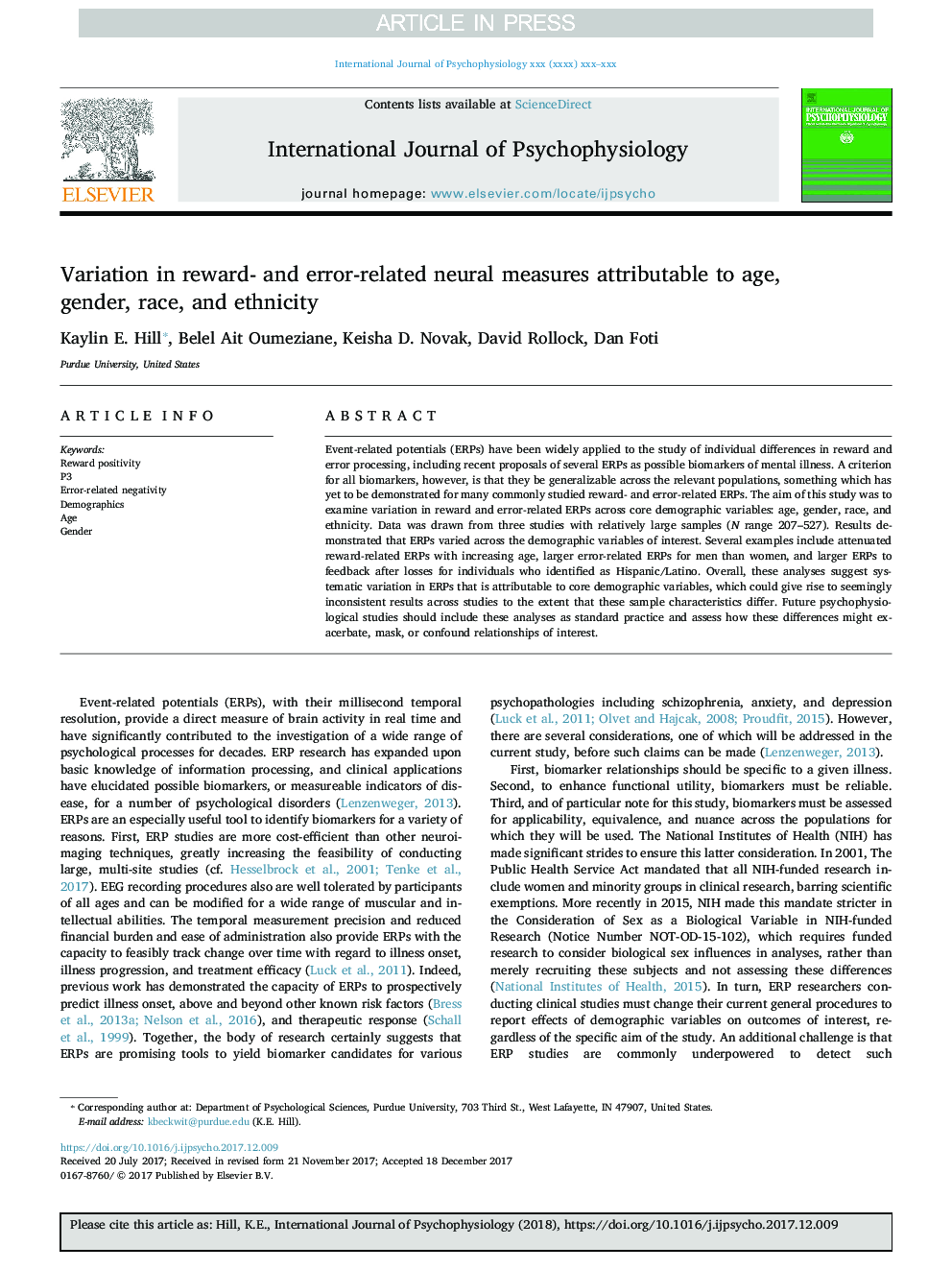| Article ID | Journal | Published Year | Pages | File Type |
|---|---|---|---|---|
| 10153537 | International Journal of Psychophysiology | 2018 | 12 Pages |
Abstract
Event-related potentials (ERPs) have been widely applied to the study of individual differences in reward and error processing, including recent proposals of several ERPs as possible biomarkers of mental illness. A criterion for all biomarkers, however, is that they be generalizable across the relevant populations, something which has yet to be demonstrated for many commonly studied reward- and error-related ERPs. The aim of this study was to examine variation in reward and error-related ERPs across core demographic variables: age, gender, race, and ethnicity. Data was drawn from three studies with relatively large samples (N range 207-527). Results demonstrated that ERPs varied across the demographic variables of interest. Several examples include attenuated reward-related ERPs with increasing age, larger error-related ERPs for men than women, and larger ERPs to feedback after losses for individuals who identified as Hispanic/Latino. Overall, these analyses suggest systematic variation in ERPs that is attributable to core demographic variables, which could give rise to seemingly inconsistent results across studies to the extent that these sample characteristics differ. Future psychophysiological studies should include these analyses as standard practice and assess how these differences might exacerbate, mask, or confound relationships of interest.
Related Topics
Life Sciences
Neuroscience
Behavioral Neuroscience
Authors
Kaylin E. Hill, Belel Ait Oumeziane, Keisha D. Novak, David Rollock, Dan Foti,
